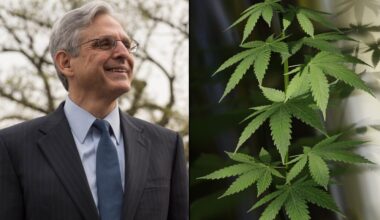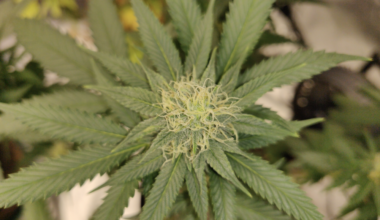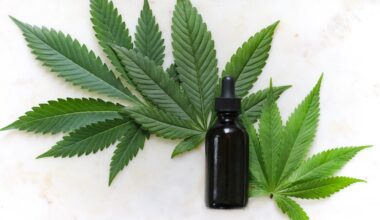Washington, D.C. Mayor Muriel Bowser (D) has signed a bill that bans most workplaces from firing or otherwise punishing employees for marijuana use.
The mayor sent the measure back to the District Council on Tuesday’s deadline for action, about a month after the local lawmakers approved the legislation from Councilmember Trayon White (D). It must still undergo a congressional review period before formally becoming law.
The reform is designed to expand on a previous measure lawmakers approved to protect local government employees against workplace discrimination due to their use of medical cannabis.
The new legislation would “prohibit employers from firing, failing to hire, or taking other personnel actions against an individual for use of cannabis, participating in the medical cannabis program, or failure to pass an employer-required or requested cannabis drug test, unless the position is designated safety sensitive or for other enumerated reasons,” according to the text.
Police, safety-sensitive construction workers and people with jobs that require a commercial driver’s license or work with childcare and patients and positions “with the potential to significantly impact the health or safety of employees or members of the public” could still be fired or punished for cannabis use, however.
There are also exceptions for workers contracted by the federal Department of Transportation (DOT), which has separately faced pressure to revise its own drug testing policies for marijuana, especially in light of a driver shortage.
—
Marijuana Moment is tracking more than 1,500 cannabis, psychedelics and drug policy bills in state legislatures and Congress this year. Patreon supporters pledging at least $25/month get access to our interactive maps, charts and hearing calendar so they don’t miss any developments.![]()
Learn more about our marijuana bill tracker and become a supporter on Patreon to get access.
—
“Due to the rapidly changing status of cannabis and the lack of evidence supporting drug testing laws, jurisdictions across the country are considering or have adopted laws to protect lawful cannabis use,” a report attached to the bill says.
“Currently, the District prohibits pre-employment drug testing for cannabis before a conditional job offer and prohibits adverse actions against District employees who are medical cannabis patients,” it continues. “Employees in the private sector do not have such protections despite adult use being legal in the District. This bill will change that.”
Congress now technically has 60 days to overturn the new local policy before it takes effect, though it is highly unlikely the Democratic-controlled House and Senate would take such an action.
Meanwhile, Bowser also recently signed into law a novel piece of legislation that allows adults to self-certify as medical cannabis patients, effectively circumventing a congressional rider that has blocked the District for implementing a system of adult-use marijuana sales even though voters approved legalization in 2014.
That rider was excluded from recent House appropriations legislation that’s heading to the floor, but it remains to be seen whether the Senate will follow suit or how the president would react given that he’s maintained the prohibitive language in his last two budget requests.
In any case, U.S. Rep. Eleanor Holmes Norton (D-DC) told Marijuana Moment in a phone interview on Tuesday that she’s “fairly optimistic” that the Senate will keep the rider out of its version. But in the interim, the D.C. self-certification policy is an “effective workaround,” she said.
The employment protection move in D.C. is also consistent with developments in other states to loosen drug testing policies for marijuana as more states move to legalization.
Last month, for example, the governor of Louisiana signed a bill to provide workplace protections for most state employees who are registered medical marijuana patients.
In New York, the state Department of Labor announced last year that employers are no longer allowed to drug test most workers for marijuana. And a recent analysis from New York City legal officials said that leniency must also to apply to police, firefighters and other government workers.
Prior to the passage of statewide legalization, New York City officials had established a local ban on pre-employment drug testing for marijuana.
The Kansas City, Missouri Council also voted last year to enact a similar policy drug testing policy change for cannabis.
A nationwide labor report recently found that drug testing rates at U.S. workplaces have fallen considerably over the past quarter-century, as states began ending marijuana prohibition. The government-collected data also offered a glance at what types of industries are screening workers for drugs the most and the least.
Meanwhile, New Jersey lawmakers introduced a series of bills in May that are meant to empower employers to punish workers—including law enforcement and other first responders specifically—from using marijuana off duty in compliance with state law.
In another setback for advocates, a House-passed bill in Illinois concerning workplace protections for employees who use cannabis off-the-job recently stalled in the Senate before the chamber adjourned for the session.
A Colorado House committee also rejected a bill that would have provided protections for workers in that state who use marijuana off the job. As introduced, the measure also would have allowed medical cannabis patients to use marijuana at work, although later amendments scaled back those protections.
Photo courtesy of Martin Alonso.
Medical Disclaimer:
The information provided in these blog posts is intended for general informational and educational purposes only. It is not a substitute for professional medical advice, diagnosis, or treatment. Always seek the advice of your physician or other qualified healthcare provider with any questions you may have regarding a medical condition. The use of any information provided in these blog posts is solely at your own risk. The authors and the website do not recommend or endorse any specific products, treatments, or procedures mentioned. Reliance on any information in these blog posts is solely at your own discretion.






